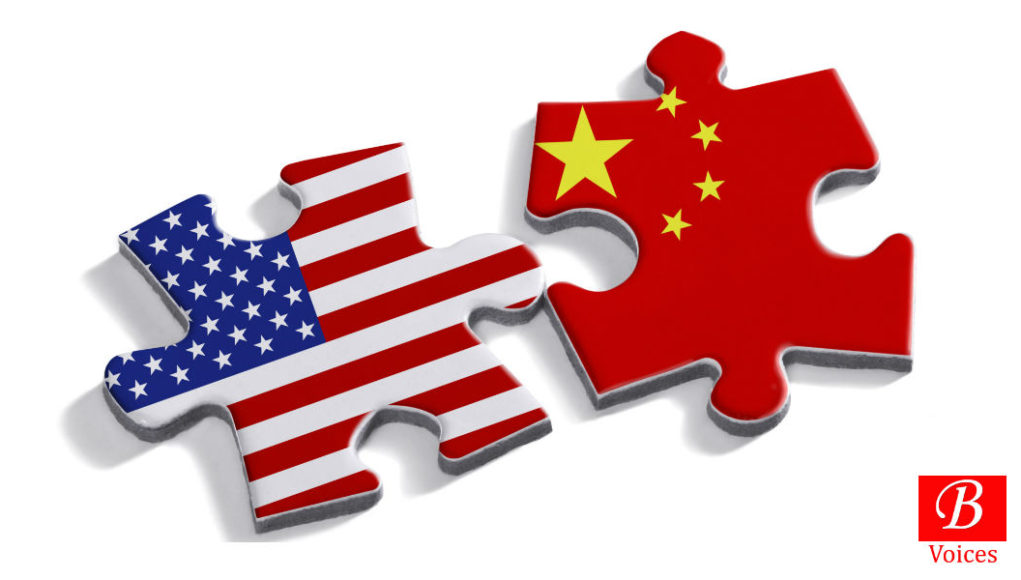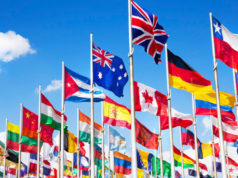 Tahira Adam Khan
Tahira Adam Khan
Winston Churchill, former British Prime Minister, once said;
“You can always depend on the Americans to do the right thing, after they have tried everything else.”
America has been leading the world affairs for more than a century but, now, some analysts have started predicting that China’s economic rise in terms of Power Purchasing Parity (PPP) and Gross Domestic Product (GDP) would cause or provide full stop to this ‘still ongoing’ American rule over the world’s most diffused power politics. This type of thesis has not only weighed heavily upon American collective consciousness but also hinted at the possibility of cold war between these two competing giants. Surely, future arrangements of the century are not going to look like past but, instead, forecasting the probability of more complex world.
Undoubtedly, China looms heavily on the horizon which suggests that this century can turn out to be named as ‘The Chinese Century’ which is currently labeled as ‘The Pacific Century’ by some media houses. Chinese rise is the most important development of the past 100 years because of which prevailing circumstances has given rise to many questions, worries, changes etc.
So, can we say that we are living in post-American world?
Is America in decline?
For Joseph Nye, a Harvard professor and foreign policy analyst, the answer is a big ‘NO’ which he has discussed with qualifications in his short but well-argued book titled as ‘Is American Century over?’ He claims that Chinese are far behind U.S in every concerned dimension necessary for enjoying hegemonic status over the global landscape. Indeed, American firm hand is still remained in place; as far as Nye thesis is concerned.
The pretext of decline is assumed to be started when America witnessed civil war along with the assassination of her President. Some thinkers dated back decline to the war of 1812 where it got British barricade along with attacks on several governmental institutions and capitol buildings including the white house. While the 21st century analysts tend to point fingers at the two failed abroad wars (Afghanistan in 2001 and Iraq in 2003) for the ultimate fall of America. Besides, internal financial crisis is adding fuel to the fire.
Nye has previously provided a great deal of work on different modes of state power. This time he has rejected concerns over American global clout with much genuine and intelligent framework of argumentation. He, simply, reclaims American influence not only for this century but for the next century as well if and only if America manages a sustained network of co-operation with other states.
He, elaborately, reinforces the need of hour as previously demonstrated by President, Barack Obama, and US Secretary of State, John Kerry, that;
“United States can’t achieve many of its international goals acting alone”.
He further reiterates that;
“The problem of leadership in such a world is how to get everyone into the act and still get action”
This is the key point which has not been perceived globally by political leadership yet.
He takes painstaking efforts to describe the term ‘decline’ and the difference between its different forms. American decline exists in two modes i.e. relative one and the absolute one. Relative one is because of the emergence of other powerful states that have surpassed U.S in some areas like that of China, Russia, Brazil, and India etc. Absolute decline of U.S is because of domestic deterioration and flawed political apparatus which needs to be reformed with much mature policy framework as the real threat of fall lies there and nowhere else.
In addition, he explains power with elaboration of its key factors. Power is not only the name of coercion and economic stability but also the reference towards attraction and persuasion for which, Nye, has coined a new term ‘Soft Power’. All sorts of power are required for any country to lead the world or replace U.S which seems not possible at the moment.
Let’s have a look at proposed competitors and the reasons because of which they lack necessary breadth of power for overhauling U.S.
China is, no doubt, producing geopolitical difficulties for influenced American role in Asia but the latter one is having strong military command over sea and land along with stable economic and diplomatic (Washington is enjoying more allies even in Asian as compared to Beijing) stature as compared to the former one. Besides, China also lacks the magical effects of soft power which, for U.S, attracts foreign talent skilled force, innovations and constant flow of immigrants.
Lee Kwan Yew said;
“China can draw on the talents of 1.3 billion people, the United States however can draw upon the talents of 7 billion people, and what’s more, as long as it keeps accepting immigrants from around the world, it can recombine them in a diversity that is more creative than anything that will be established by ethnic Han Nationalism”.
In addition, U.S is enjoying upper hand over this existential threat in other areas like currency trading, rule of law and national development.
With usual clarity and insight, Nye, describes the considerable structural inefficiency of other challengers which is causing their inability to overtake U.S. Russia economic status is like a house of cards, India is facing severe economic disparity between rich and poor, Japan is engaged with acute cultural ignominy and, lastly, Brazil – no exception to the above mentioned states – where economic status is facing nothing but disgraceful instability only.
No state can be considered as a threat for the U.S except her own self. America is much behind the developed world in case of racial tensions, flawed legislation, infant mortality and decaying domestic politics. Nye, then, cites examples of Britain – before the two world wars – to demonstrate the effects of domestic deterioration on absolute power which, ultimately, gave rise to others at the expense of country’s own relative power.
By taking arguments to its logical conclusion: U.S is likely to dominate with the rise of rest among this current but complex geo-strategic power shifts and with the help of co-operative networking and alliances. Carefully assessing the global power challengers, Nye is left with China as the sole credible threat which is, still, some distance behind the U.S.
Writer is a Student of BS (Hons) Political Science in University of the Punjab, Lahore
Share your comments!








